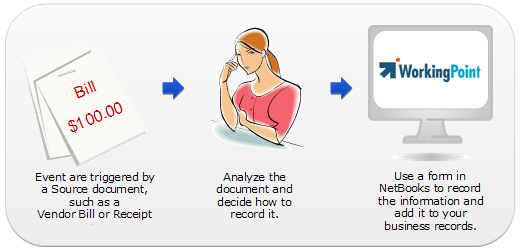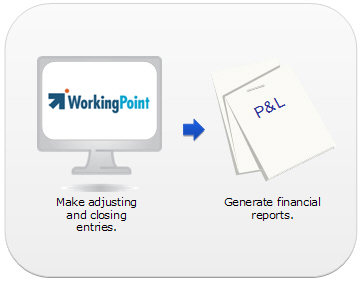 For any entrepreneur, the value of a mentor can almost never be overstated. Whether it’s building your business plan, defining your market, figuring out a product strategy, or trying to sell your spouse on the idea that giving up a steady paycheck from someone else is a sane thing to do, a mentor is one of the single most valuable things any entrepreneur can find. Sometimes they come out of the woodwork when you least expect it; other times, you have to go on an aggressive hunt for the right one.
For any entrepreneur, the value of a mentor can almost never be overstated. Whether it’s building your business plan, defining your market, figuring out a product strategy, or trying to sell your spouse on the idea that giving up a steady paycheck from someone else is a sane thing to do, a mentor is one of the single most valuable things any entrepreneur can find. Sometimes they come out of the woodwork when you least expect it; other times, you have to go on an aggressive hunt for the right one.
One of the best places for many new entrepreneurs to start is SCORE. (Disclaimer: WorkingPoint is a SCORE sponsor.) SCORE is an organization comprised of small business owners — some actively running businesses, others retired — who work together to build a community to support other small business owners. While some parts of the country have locally grown networks to support entrepreneurs, SCORE has more than 350 chapters across the US, dedicated to providing counseling and advising services to small business owners.
This week, on SCORE’s Ask an Expert blog, advisor Steve Bloom posted an article on a recent experience he had working with an entrepreneur whose idea was not something he felt had sufficient market to be a viable business. In the post, Steve recounts the conflict he felt between wanting to encourage the entrepreneurial spirit and the strong sense that this particular idea had extremely long odds of success.
Ultimately, the real point he endevours to drive home, is that whether or not the idea is successful, the entrepreneur can still learn a tremendous amount from trying to get his venture up and running. The value of the lessons one can learn through failure is something that every entrepreneur must always remember. In the blogosphere “failing fast” is a common topic, but in reality, most of us are so terrified to fail that we will often turn ourselves inside out in an effort to avoid that experience.
This is one of the places that a mentor can help: a mentor who has been through the process before can not only offer their insight and perspective to help navigate pitfalls, but they can also help remind you that, even in the event of failure, you still get value out of an experience.
One of the most important exercises one of my earliest mentors walked me through was a process of defining my ‘worst case scenario.’ And, amazingly enough, I quickly realized that once I defined my biggest nightmare, it wasn’t anywhere near as scary as it was when it was a nebulous, ill-defined gray cloud hanging over my head; even better, it became much easier to insulate myself from the worst of the possible ramifications once I was clear about the details.
The flip side of Steve’s lesson is equally important: a mentor does not know everything. And while it’s always nice to have a mentor who understands both you and your idea, the fact is that everyone has different strengths. Just because a mentor may not consider your venture to be the world’s greatest idea, doesn’t mean it isn’t worth doing.
Part of the test for a mentor is to give you the best advice and encouragement they can; part of the test for an entrepreneur is to listen, process the information, and then make a final determination based on what you know to be true. You won’t always agree, but that doesn’t make the advice bad, or the mentor wrong. And hearing those concerns raised is always important, because it helps a new entrepreneur re-examine assumptions and ideas, to make sure there are no holes that have been over-looked.
So, if you have or are looking to start a business, and you do not already have a mentor, I’d strongly recommend looking for one. There are plenty of different approaches to try (serial entrepreneur Penelope Trunk isn’t above being slightly annoying to snag the one she wants), but whatever you do, start looking for one — check out a local SCORE chapter, Chamber of Commerce, startup incubator or entrepreneurial Meetup.
Wherever you look, just remember: someone who has done it before, always has insights of value for someone just starting out. They may not all fit, but there is always the chance for some great gems that can help you side-step a landmine.
Alora Chistiakoff is an entrepreneur, content strategist and project manager who has been developing online business and technology for startups for more than a decade. She co-owns The Indigo Heron Group, Inc., a content strategy firm in Austin, Texas.
The WorkingPoint office will be closed on Friday, January 1, 2010.


 As if year-end wrap up lists weren’t enough fun by themselves, I thought I’d share another particularly good ‘list of lists’ specifically designed for small business owners.
As if year-end wrap up lists weren’t enough fun by themselves, I thought I’d share another particularly good ‘list of lists’ specifically designed for small business owners.  For any entrepreneur, the value of a mentor can almost never be overstated. Whether it’s building your business plan, defining your market, figuring out a product strategy, or trying to sell your spouse on the idea that giving up a steady paycheck from someone else is a sane thing to do, a mentor is one of the single most valuable things any entrepreneur can find. Sometimes they come out of the woodwork when you least expect it; other times, you have to go on an aggressive hunt for the right one.
For any entrepreneur, the value of a mentor can almost never be overstated. Whether it’s building your business plan, defining your market, figuring out a product strategy, or trying to sell your spouse on the idea that giving up a steady paycheck from someone else is a sane thing to do, a mentor is one of the single most valuable things any entrepreneur can find. Sometimes they come out of the woodwork when you least expect it; other times, you have to go on an aggressive hunt for the right one.

 I love startups. I love the chaos. I love the insane hours. I love the energy. I love the types of people who are attracted to work on high-risk ideas with long odds. I love the culture that evolves around them. I love it all. I have spent my career hopping from one startup to the next, because there is nothing I love more.
I love startups. I love the chaos. I love the insane hours. I love the energy. I love the types of people who are attracted to work on high-risk ideas with long odds. I love the culture that evolves around them. I love it all. I have spent my career hopping from one startup to the next, because there is nothing I love more.
